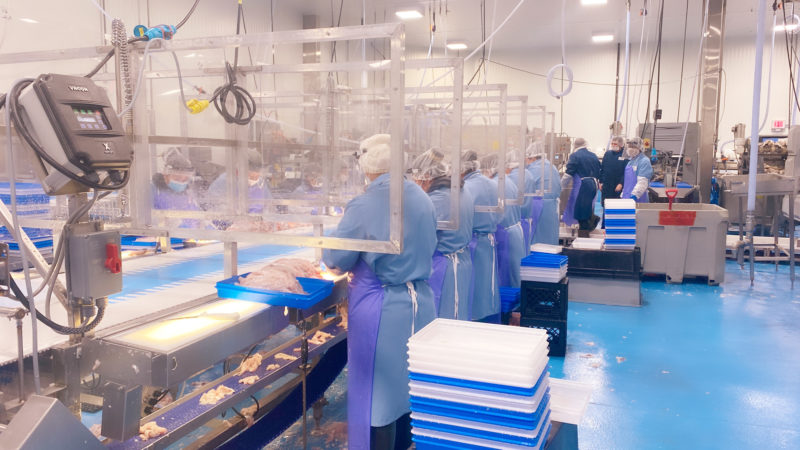Blue Harvest Fisheries adopted new safeguards to help protect workers from covid-19, including plexiglass enclosures on the processing line in its New Bedford, Mass., plant.
The company said Thursday that no workers have contracted the illness on the job, but two had tested positive for covid-19 over an 11-day period after apparently contracting it outside of work. The company reported those cases to the city Board of Health.
The company says it had already adopted a 25-point protocol for covid-19 “based on emerging best practices and had arranged for an independent company to conduct deep cleaning and disinfecting even before the anticipated closure order arrived.”
After closing at the end of business April 23, Blue Harvest staff working around the clock over the weekend installed three-sided plexiglass separations between workers’ stations on the line, to improve social distancing on the plant floor before operations resumed Monday.
Common surfaces in the plant are cleaned frequently, followed by regular deep cleaning of the entire facility, according to Blue Harvest. All employees are required to wear facemasks and face shields on the production floor.
Employees’ temperatures are checked twice daily, before entering for work in the morning and before leaving at night. Common areas were rearranged to observe proper social distancing measures.
Worker safety has ballooned to a crisis in the meatpacking industry, with producers including Tyson and Smithfield closing plants and facing confrontation with labor unions. Blue Harvest says it is following guidelines from the Centers for Disease Control and other federal agencies, and in additional adopted its own 25-point plan. The company also boosted its hourly wages by $1 as hazard pay for the duration of the Massachusetts public health emergency declaration.
“Blue Harvest Fisheries is committed to the safety and well-being of its employees, and to the safety and quality of its seafood products, above all else,” the company said in a prepared statement outlining the measures.
|







